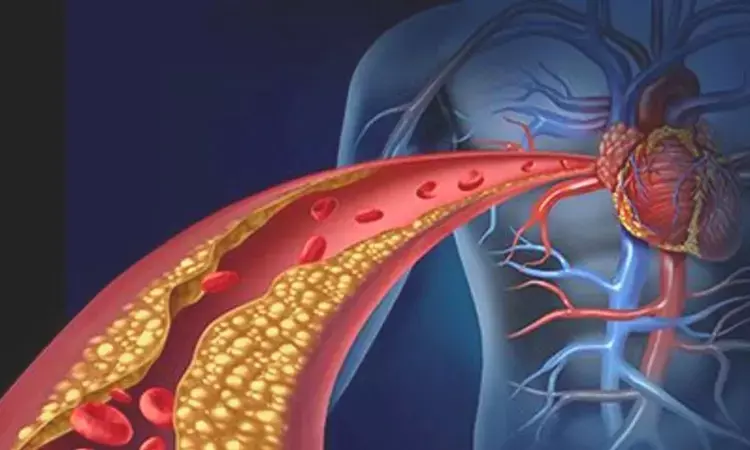- Home
- Medical news & Guidelines
- Anesthesiology
- Cardiology and CTVS
- Critical Care
- Dentistry
- Dermatology
- Diabetes and Endocrinology
- ENT
- Gastroenterology
- Medicine
- Nephrology
- Neurology
- Obstretics-Gynaecology
- Oncology
- Ophthalmology
- Orthopaedics
- Pediatrics-Neonatology
- Psychiatry
- Pulmonology
- Radiology
- Surgery
- Urology
- Laboratory Medicine
- Diet
- Nursing
- Paramedical
- Physiotherapy
- Health news
- Fact Check
- Bone Health Fact Check
- Brain Health Fact Check
- Cancer Related Fact Check
- Child Care Fact Check
- Dental and oral health fact check
- Diabetes and metabolic health fact check
- Diet and Nutrition Fact Check
- Eye and ENT Care Fact Check
- Fitness fact check
- Gut health fact check
- Heart health fact check
- Kidney health fact check
- Medical education fact check
- Men's health fact check
- Respiratory fact check
- Skin and hair care fact check
- Vaccine and Immunization fact check
- Women's health fact check
- AYUSH
- State News
- Andaman and Nicobar Islands
- Andhra Pradesh
- Arunachal Pradesh
- Assam
- Bihar
- Chandigarh
- Chattisgarh
- Dadra and Nagar Haveli
- Daman and Diu
- Delhi
- Goa
- Gujarat
- Haryana
- Himachal Pradesh
- Jammu & Kashmir
- Jharkhand
- Karnataka
- Kerala
- Ladakh
- Lakshadweep
- Madhya Pradesh
- Maharashtra
- Manipur
- Meghalaya
- Mizoram
- Nagaland
- Odisha
- Puducherry
- Punjab
- Rajasthan
- Sikkim
- Tamil Nadu
- Telangana
- Tripura
- Uttar Pradesh
- Uttrakhand
- West Bengal
- Medical Education
- Industry
Higher leptin levels tied to coronary artery calcium progression: Study

USA: A recent study in the journal Diabetes Epidemiology and Management showed that higher leptin levels are independently but modestly associated with the progression of coronary artery calcium (CAC). One mechanism through which leptin confers increased cardiovascular disease (CVD) risk may be atherosclerosis progression.
Adipose-related hormones called "adipokines" play a role in cardiometabolic pathways and have been linked to incident CVD. CAC progression prognosticates the risk of CVD. However, the association of adipokines with CAC progression is not well studied. Considering this, Erin D. Michos, Division of Cardiology, Johns Hopkins University School of Medicine, Baltimore, MD, United States, and colleagues aimed to examine the association of adipokines with CAC progression in a multi-ethnic cohort free of CVD at baseline.
For this purpose, the researchers included 1,904 randomly-selected adults enrolled in the multi-ethnic study of atherosclerosis having both adipokine levels [leptin, resistin, adiponectin] and CAC measured at either exam 2 (2002–2004) or exam 3 (2004–2005). CAC was measured previously at exam 1 (2000–2002) and a subset (n = 566) had CAC measured at exam 5 (2010–2012). The odds of CAC progression were examined between exam 1 and 2/3 (defined as >0 Agatston units of change/year) using logistic regression. CAC progression from exam 2/3 to 5 was examined.
Key findings include:
- At exam 2/3, the mean age was 65 yrs; 50% women.
- In models adjusted for sociodemographic factors and BMI, the highest tertile of leptin, compared to lowest, was associated with an increased odds of CAC progression over the preceding 2.6yrs [OR 1.60].
- In models further adjusted for visceral fat and CVD risk factors, the highest tertile of leptin was statistically significantly associated with a 4% greater CAC progression over an average of 7yrs.
- No associations were seen for resistin and adiponectin.
"In this longitudinal study from the MESA cohort," the researchers wrote, we found statistically significant positive associations between higher levels of leptin and CAC progression. The clinical significance remains uncertain."
"Atherosclerosis progression may be one mechanism through which leptin confers increased CVD risk," they concluded.
Reference:
The study titled, "Higher leptin levels are associated with coronary artery calcium progression: The multi-ethnic study of atherosclerosis (MESA)," was published in the journal Diabetes Epidemiology and Management.
Dr Kamal Kant Kohli-MBBS, DTCD- a chest specialist with more than 30 years of practice and a flair for writing clinical articles, Dr Kamal Kant Kohli joined Medical Dialogues as a Chief Editor of Medical News. Besides writing articles, as an editor, he proofreads and verifies all the medical content published on Medical Dialogues including those coming from journals, studies,medical conferences,guidelines etc. Email: drkohli@medicaldialogues.in. Contact no. 011-43720751


